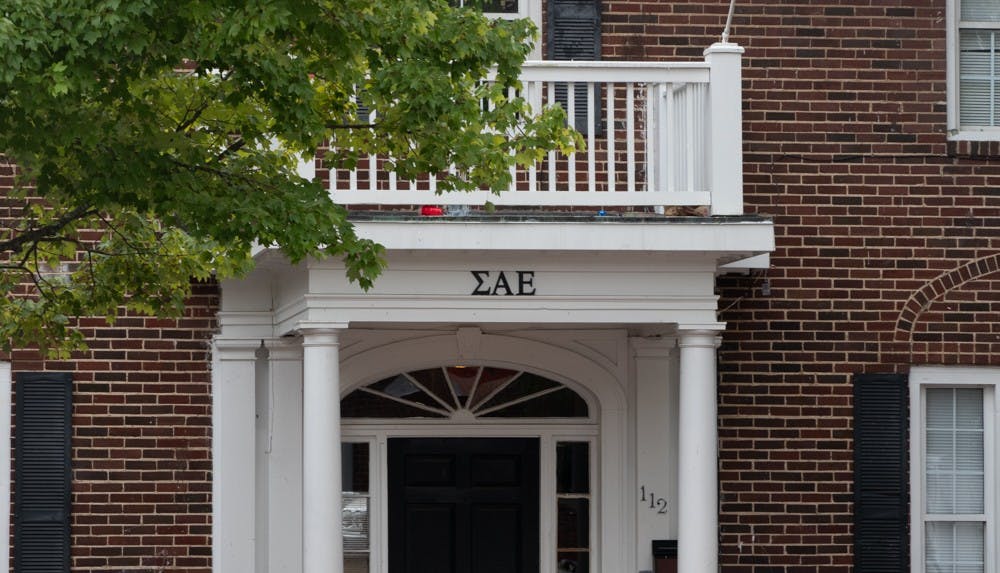UNC’s chapter of Sigma Alpha Epsilon lost University recognition on July 2 as a result of hazing violations of the Instrument of Student Judicial Governance.
The University’s chapter of SAE, the North Carolina Xi chapter, will remain unrecognized by the University until at least 2023, according to a report by the Office of Fraternity and Sorority Life.
“Hazing poses serious threats to not only students’ physical safety but also their emotional wellbeing,” said Jonathan Sauls, interim vice chancellor for Student Affairs, in a statement. “The University does not tolerate hazing under any circumstances.”
The Instrument of Student Judicial Governance — a document that covers UNC’s honor code and its means of enforcing it — prohibits hazing that "causes or permits an individual, with or without consent, to engage in activities that subject that individual or others to risks of physical injury, mental distress or personal indignities of a highly offensive nature, in connection with recruitment, initiation or continued membership in a society, fraternity or sorority, club or similar organized group, whether or not recognized by the University." Violators of the instrument, like SAE, can face conduct sanctions, loss of group privileges and sanctions on the group’s status or charter.
As an unrecognized student organization, SAE will no longer receive support from OFSL, nor will it be eligible for funding or be able to take part in privileges extended to recognized organizations. These privileges include having intramural teams and reserving spaces, UNC Media Relations said in an email.
The DTH contacted the Xi chapter and SAE National for comment but received no response from either by the time of publication.
In 2017, the national organization made a statement about the closure of its chapter at the University of Mississippi, regarding its stance on any actions that harm the health and safety of its members.
“Sigma Alpha Epsilon has zero tolerance for any actions or behaviors that are not consistent with our mission and our creed, ‘The True Gentleman,’” the organization said in the statement. “We are committed to the safety and well-being of our members and others with whom they interact.”
The statement also referenced violations of “Minerva’s Shield,” a booklet that details the organization’s health and safety policies. The booklet lists what behaviors are considered hazing and states that “no member should ever feel he must prove his worth to be welcomed as a brother.”



